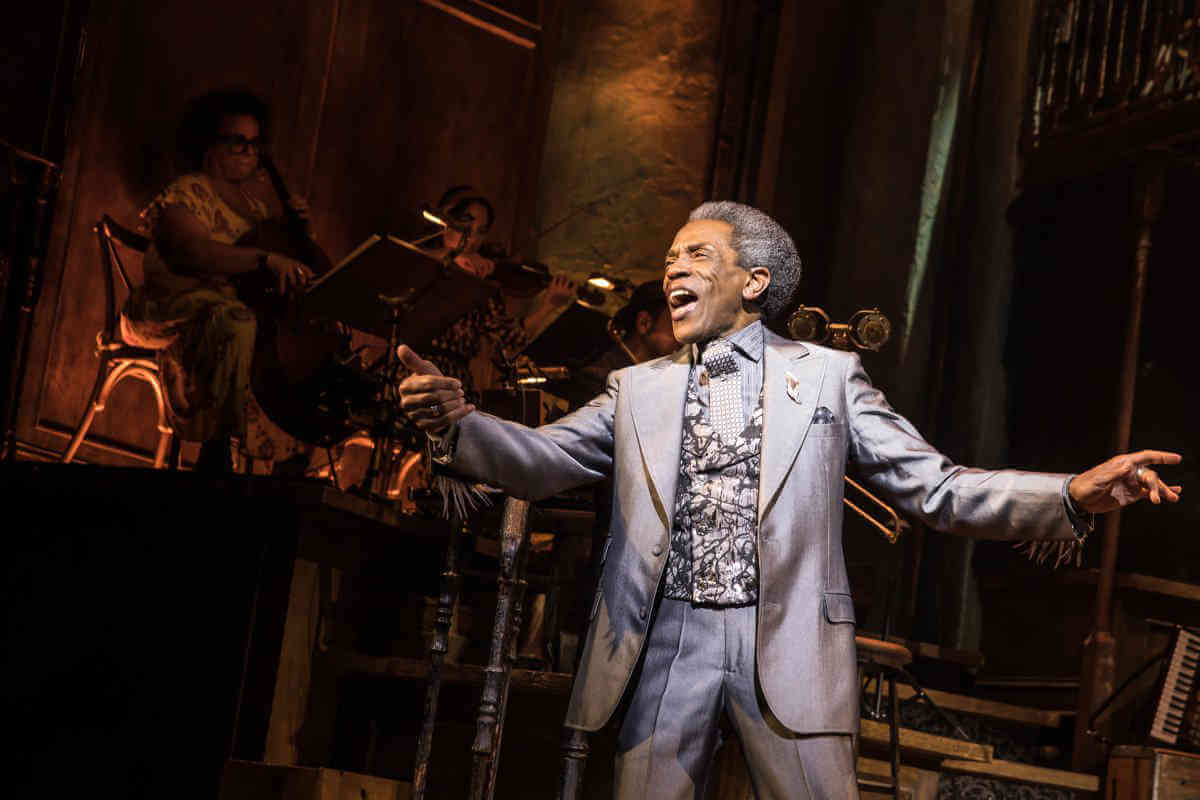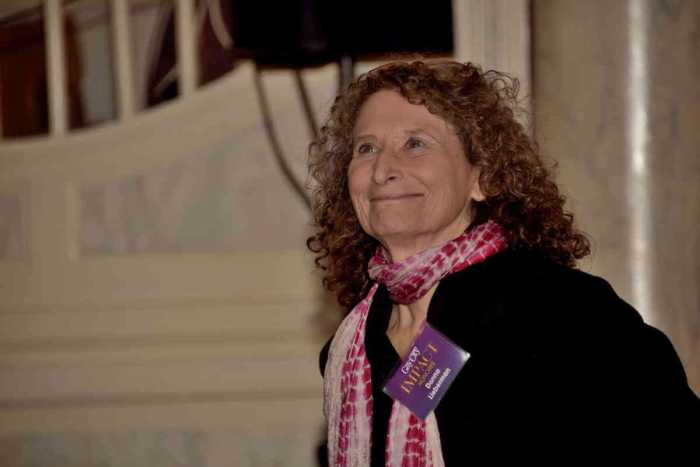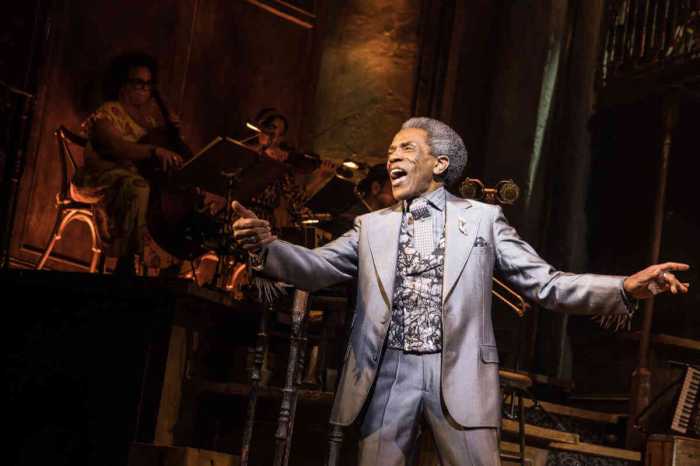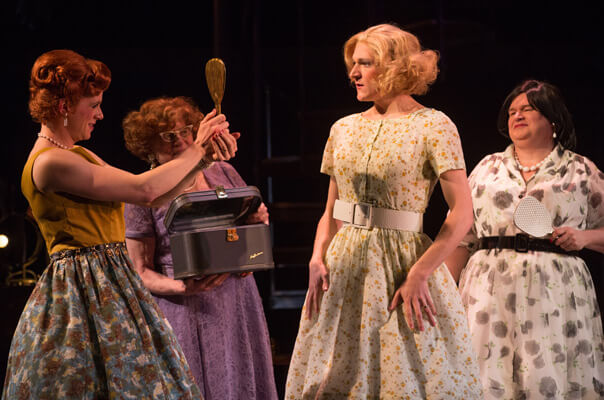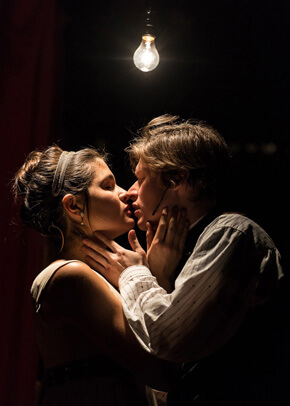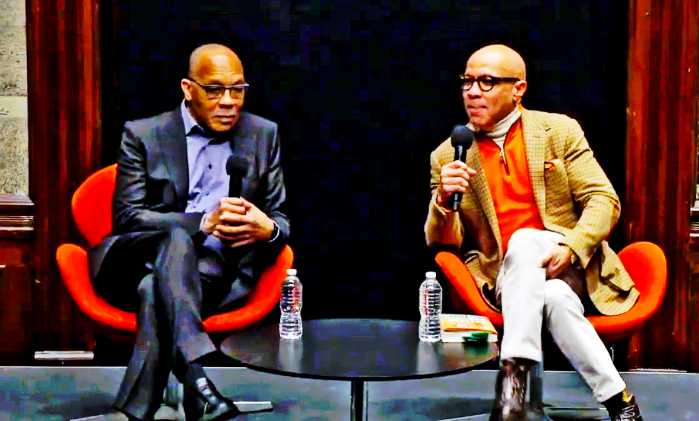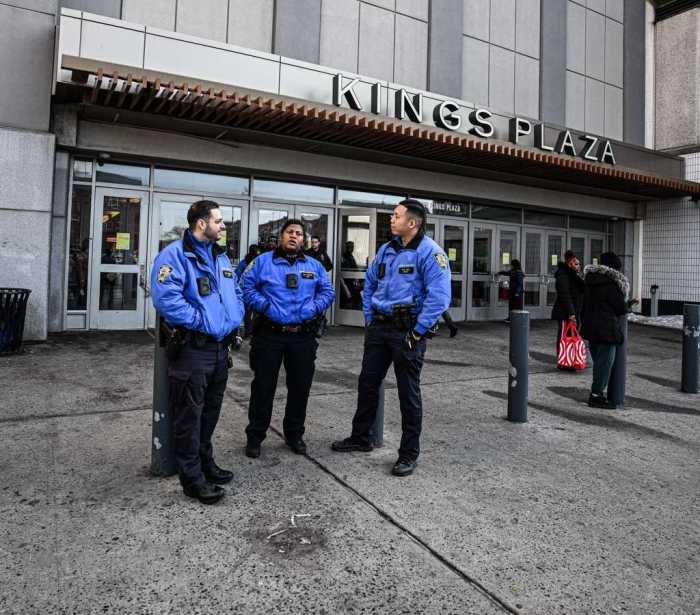Genre-busting. Ingenious. Revelatory. Cosmic. These are but a few of the adjectives that don’t come close to fully describing the new Broadway sensation that is “Hadestown.” The show is truly ineffable.
When the project began more than a decade ago, singer-songwriter Anaïs Mitchell certainly didn’t set out to write the book, music, and lyrics for a Broadway show. She started with a song cycle, which morphed into a concept album, then an immersive concert piece at the New York Theatre Workshop Off Broadway, then a full-blown musical at London’s National Theatre last year.
Yet the term “musical” isn’t quite right. It’s more like a folk opera, featuring a generous mix of bluesy folk, New Orleans jazz, funk, and gospel music. Did I detect a dollop of ragtime as well? Mitchell admits to heavy cinematic and soundscape influences — and it shows.
The material is drawn from a wildly unlikely source — the ancient legend of the star-crossed young lovers Orpheus and Eurydice, which also spotlights Hades, King of the Underworld (known here as Hadestown), and his wife Persephone, Goddess of the Seasons. Hermes, Messenger of the Gods, figures prominently as well, serving as emcee extraordinaire, introducing each character and filling in the blanks to push the narrative along.
Also on hand are The Fates, a trio of sassy black women serving as a kind of Greek chorus, who not only comment on the action but also hurl nasty curveballs at Orpheus and Eurydice. And if you’re rusty on your Greek mythology, you’d do well to study the primer in the Playbill.
In staging this mythical, multifaceted story, director Rachel Chavkin works the same magic as she did with “Natasha, Pierre, & the Great Comet of 1812,” employing a proscenium-punctured set (crafted by Rachel Hauck) with a lively orchestra — more like a band, actually — onstage. Midway through the proceedings, Persephone calls out each musician by name, rock-concert style, to well-deserved cheers.
For her part, Mitchell has selected bits from various versions of the legend (Virgil and Ovid each documented it) and put her own spin to devise the book, focusing on analogous love stories. Orpheus, the dreamy son of Apollo and Calliope, is a silvery-voiced musician whose “lute” is really a guitar. He falls compulsively in love with the beautiful nymph Eurydice, who wanders the land lost and hungry. After a hasty marriage, she is lured by Hades, who has built a vast underworld of factories and electric grids, powered by an army of grunting, indentured workers. After she sells her soul to the wicked king, Orpheus, armed with only his guitar and grit, fights his way to Hadestown to rescue her.
Turns out the older couple, Hades and Persephone, also once shared a deep love, but over time it has gone cold. This is mirrored by Hades holding back Persephone’s annual trip above ground, throwing the seasons out of whack. The increasingly long winters have a punishing effect on the citizens above. Can the gentle poet save the world though his song?
Not that the dizzying plot should be the focus. It’s the intense, ever-shifting moods and emotions that count, brought to life not only by the orchestrations but by astonishing, full-throttle performances. A snowy-white bearded Patrick Page, dressed to the nines in a flashy pinstriped suit, is evil incarnate as the filthy rich Hades, and his booming, sonorous vocals stop the show.

Amber Gray embodies Persephone with a roguish ebullience as she beckons the folks living above to raise their cups and have another drink. Eva Noblezada lends a fresh, contemporary flair to the foolish Eurydice, who loses faith in her husband way too soon. Her voice is now even finer than when she played the titular lead in “Miss Saigon” last season.
And esteemed Broadway veteran André de Shields’ take on Hermes is like nothing you’ve ever seen. At 74 years old, he commands the stage effortlessly. With one raised eyebrow, or a flick of his wrist, he has us firmly in the palm of his hand.
The only performer I have a quibble with is Reeve Carney, of “Spider-Man: Turn Off the Dark” fame. His milquetoast Orpheus is too tentative, too tremulous to convince us he has the fortitude to rescue his bride from the monster below. That said, his voice is beguiling, as he repeatedly wails his “song to fix what’s wrong; take what’s broken and make it whole.”
This tragic, centuries-old love story reverberates with relevance, not just in its themes of romantic love and loss, but with allusions to modern day politics. The parallels to the rich exploiting the poor, and the threat of climate change due to human greed are striking.
There’s one bone-chilling number, “Why We Build the Wall,” intoned by the gravelly voiced Hades, justifying his fortress to keep out “the enemy which is poverty” and “to keep us free,” a barbed reference to the current White House occupant. The number was executed flawlessly, but it felt impolitic, if not downright dirty, applauding a maniacal dictator bent on oppressing people of disadvantaged backgrounds.
Like any good myth, “Hadestown” delivers a mighty potent lesson; in this case, that storytelling and song can prove a healing balm in dastardly dark times. The power of art can defy evil, and that’s something that offers hope and soothes the soul even today.
“Wipe away your tears, brother,” says Persephone. “Look a little closer and there’s a crack in the wall.”
HADESTOWN | Walter Kerr Theatre, 219 W. 48th St. | Tue.-Thu. at 7 p.m.; Fri.-Sat. at 8 p.m.; Wed., Sat. at 2 p.m.; Sun. at 3 p.m. | $109-$159 at hadestown.com | Two hrs., 30 mins., with intermission


